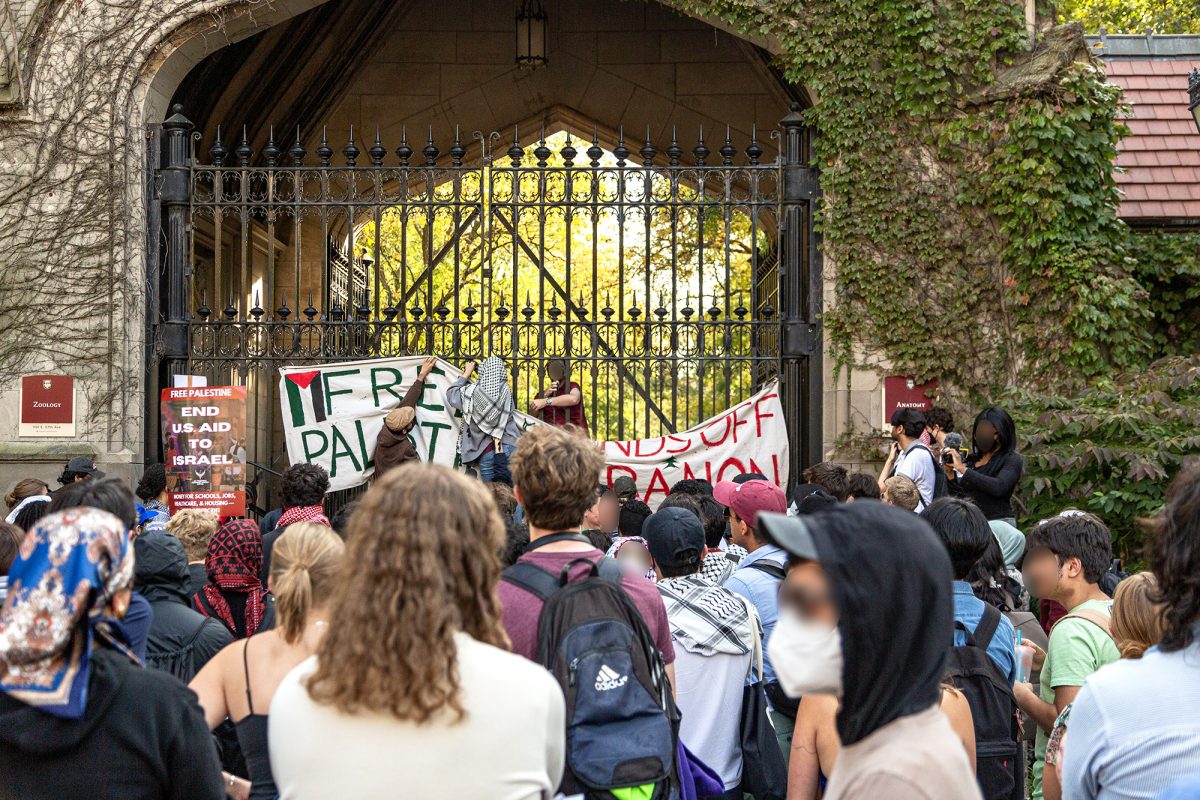President Robert Zimmer and Provost Thomas Rosenbaum have asked deans and University officers to develop scenarios that decrease spending in their departments by up to nine percent in response to the recent economic downturn.
“As the economy has deteriorated, officers and deans at the University of Chicago—like their counterparts across the nation—have begun contingency planning. No decisions have been made about the magnitude or nature of potential cuts, but discussions are underway to identify ways the University might reduce costs without slowing its academic momentum or harming other core efforts, such as financial aid,” University spokesman Steve Kloehn said in a released statement.
According to several deans, the terms of the administration’s request were not cut-and-dry. Dean of the Harris School Susan Mayer said that while the administration was looking for contingency scenarios that factored in cuts of three, six, and nine percent, those numbers were meant to be part of a series of ongoing discussions between deans and Rosenbaum’s office.
“It hasn’t been, ‘Submit to us three progressively Draconian budget cuts,’” Mayer said. “We were all asked to think about our own units and talk to the budget office and the provost about our ideas…. My conversations on the financial situation have been much more nuanced than [hard-and-fast figures].”
She said that academic divisions were not asked to cut precise dollar amounts in these scenarios.
Universities across the country have been dealing with the fiscal crisis’s effect on their revenue. Last month, Harvard President Drew Gilpin Faust said that the school’s $37 billion endowment had suffered record losses and that Harvard must “plan for a period of greater financial restraint.”
The U of C declined to disclose the endowment results for this fiscal year, which ended in June, until January.
Mayer also said that if cuts were enacted, they would probably not be equal across all divisions.
“You can’t have blanket orders about, ‘Cut this much, cut that much,’” she said. “The units have different degrees of financial strength.”
While several deans said they were not told whether cuts of any size would necessarily be implemented, the request comes a little over a month after Zimmer sent an e-mail to the University community warning that the financial crisis would necessitate cost reduction.
In an interview on the day he sent the e-mail, Zimmer said he was asking deans and vice presidents to reexamine their budgets.
“We asked vice presidents and deans, ‘You’re doing lots of things. Is every single thing you’re doing really of the absolute highest level of priority?’” Zimmer said.
Several University deans, including Dean of the College John Boyer, said the request was a prudent step that the University must take.
“Given the economic markets as they are now, it’s good to be prepared,” Mayer said. “It would be imprudent not to think ahead and not to do it in a thoughtful way, [resulting in] panicking and slashing budgets.”
While Mayer said that the cuts may not be immediately necessary—if at all—it was important that the planning be done now.
“This is a fairly unprecedented time; declines in the market like we’ve witnessed don’t come about too often…which is why the University has to be very prudent,” she said. “What if this lasts two years, three years? So you want people to develop these scenarios now.”
Saul Levmore, dean of the Law School, said that some deans plan for such contingencies anyway.
“I feel like I should always know what I would do if a gift or other revenue raises our budget by 10 or even 20 percent,” he said in an e-mail interview. “And similarly, downturns should be on my mind.”
Levmore said that if even the smallest of these cuts are implemented, it could require serious cuts in expenses.
“If one assumes no layoffs, as I have assumed, then even a modest budget cut of, say, two or four percent would mean a pretty substantial cut of non-salary expenses, because in a university, salaries and graduate financial aid, are expenses that dominate the picture,” he said. Non-salary expenses are the majority of the University’s operating costs, including maintenance, utilities, books, travel fees, and food.
Approximately half of the University’s expenses consist of financial aid and salaries, according to the 2007 University Report. Zimmer has said that “decreasing financial aid is off the table,” and employment levels are expected to remain about the same. Because almost half of the budget may be off-limits to cuts, in order to reign in spending by any set amount, a proposed cut could have to be nearly doubled in non-salary areas to meet any targeted figure.
Mayer said that there are several ways she has considered cutting expenses for the requested hypothetical scenarios.
“First, you can find new sources of financial aid,” she said. “There’s also natural attritions—someone who leaves and you don’t have to replace them.”
Boyer said that while the current situation is a serious one, all of its consequences might not be negative. He said that President Robert Hutchins, who served from 1929 to 1945, saw great opportunity in fiscal downturns.
“[Hutchin’s point of view] was that in times of economic stress it was all the more important that the University dedicate itself to strong educational leadership and curricular innovation,” Boyer said in an e-mail interview.
In fact, the 1930s—one of the toughest fiscal periods for the University—gave birth to one of its most recognizable programs.
“It was in that decade that the University launched the College’s famous Core curriculum, giving Chicago an extraordinary leadership position in American higher education,” he said.








